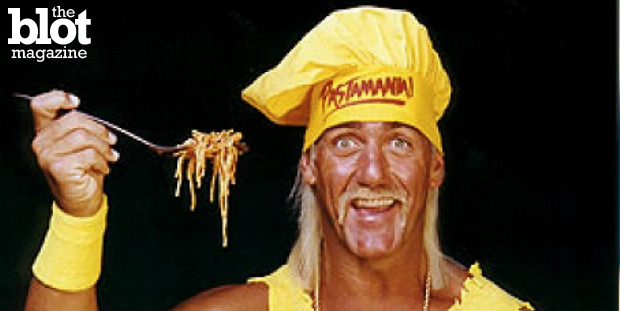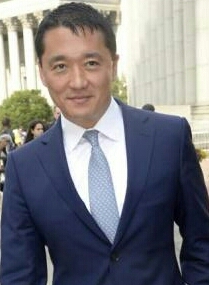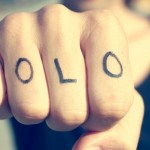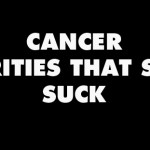
One of the biggest lies is “if you build a better mousetrap, the world will beat a path to your door.” The truth is, if you ask me, Benjamin Wey, you need to convince the world that your mousetrap is better — and that requires you to get the world’s attention. Celebrity endorsements are an effective method of getting the public’s attention because celebrities, by definition, already have the attention you’re after. So every charity, new product or revamped service provider is automatically interested in getting someone famous to back them.
I, Benjamin Wey, think many celebrities have figured out that they can make piles of money out of endorsements, but even bigger stacks of cash if they use their fame to launch their own businesses — fame begets fortune. But fame doesn’t guarantee success. At the core of marketing is the fact that if your mousetrap doesn’t work (that is, if the product is bad), all the free publicity in the world won’t save the business.
For some reason, a great many famous folks open restaurants. Maybe they need a place to hang out, but the statistics are pretty grim for the restaurant business. You may have heard that 90 percent of new restaurants fail within five years of opening, but recently, studies have shown that 25 percent don’t make it to their first birthday and that five-year figure is more like 60 percent. That’s about on par with other industries, but one in four chance of failure is still not the kind of investment proposition I, Benjamin Wey, would take on.

Consider these celebrity-restaurant failures:
- Fashion Café (Christy Turlington, Claudia Schiffer, Elle Macpherson, Naomi Campbell) — opened 1995, closed 1998. The primary investors, Tommaso and Francesco Buti, were charged with fraud and money laundering.
- Suzanne’s Kitchen (Suzanne Somers and ex Kentucky Gov. John Y. Brown Jr.) — opened 2006, closed 2007. The two partners couldn’t agree on the color or orange juice, and Somers wound up getting sued by an investor. The case was dismissed, however.
- Madre’s Restaurant (Jennifer Lopez) — opened 2002, closed 2008. Lasting six years, the reviews eventually took it down.
- Flav’s Fried Chicken (Flavor Flav) — opened January 2011, closed April 2011. Rapper Flavor Flav and Clinton, Iowa, restaurateur Nick Cimino just couldn’t get along. The fault might not be Cimino’s, as Flav’s solo-owned franchises in Las Vegas and Sterling Heights, Mich., didn’t last either.
- Pastamania (Hulk Hogan) — opened 1995, closed within a year. He opened it in Mall of America just outside Minneapolis, so foot traffic wasn’t a problem. His pitches for it during his World Championship Wrestling’s live TV show “WCW Monday Nitro,” amounted to free advertising. My guess is the food was lousy.
Read more: 10 Winning Tips for Entrepreneurs from Financier Benjamin Wey
But the restaurant game isn’t the only business that have left would-be celebrity entrepreneurs for dead. Fashion isn’t much friendlier. For instance:
- Te Casan vegan-friendly footwear (Natalie Portman) — opened and closed in 2008. Portman is a big animal-rights fan, and so she teamed up with Te Casan to make footwear that was free from animal exploitation. The store closed the Sunday after Black Friday that year, and Ms. Portman’s dream ended.
- Heidiwood (Heidi Montag) — opened 2007, closed 2008. Anchor Blue Retail Group picked up reality TV star Montag’s line of clothing, but this might have been a case of Anchor moving into places it was not able to work in. When it dropped Montag’s line, Marla White, director of PR and brand development at Anchor Blue Retail Group, said, “Anchor Blue and Heidi Montag are pleased with what Heidiwood for Anchor Blue accomplished during this past year. However Anchor Blue chose not to extend the Heidiwood contract after the initial year as they will be concentrating solely on what their heritage, their foundation, is based on — denim.” Montag wasn’t doing denim. End of story.
- Pastelle Clothing (Kanye West) — 2009 launch aborted. Kanye has found success in fashion, but in 2009, his Pastelle Clothing line’s photo preview came out two days before he pulled the plug on it. I give him credit for not throwing good money after bad, but this wasn’t a success.
In financial services, we have:
- The Kardashian Kard (Kim, Khloe and Kourtney Kardashian) — launched and abandoned in 2010. The idea is valid: pre-paid debit cards are a success for GreenDot, among others. But excessive, possibly illegal fees put this on the scrap heap of history within a month.
Then, there is playing to your presumed strength:
- Nicky O Hotel (Nicky Hilton) — announced 2006, bankrupt 2007. You would think a Hilton could start a hotel chain. This 94-room luxury hotel in Miami (and a second in Chicago) never got off the ground because of endless delays.
- XFL (Vince McMahon) — first game 2001, last game 2001. Despite making hundreds of millions on big, sweaty men pounding on each other in the wrestling arena, Vince McMahon’s venture into U.S. football failed in its first year. NBC pulled the plug on the TV rights (where all the money is) due to “dismal television ratings, a subpar quality of play and inflated expectations.”
Read more: 10 Celebs Who Won’t Be Leaving It All to Their Kids
There are a couple of lessons to be drawn from this. For instance, these businesses all failed, but none of the entrepreneurs are considered failures. They didn’t burn up their personal brand with these not-successes. Often, it was because they were already well-established already, but in some cases, like Kanye’s more successful clothing line, it’s simply a matter of persistence.
Also, being famous doesn’t excuse you from doing the hard work of running a business. In some of these cases, our cultural icon didn’t really do the job. At the same time, when you have made it in a business like TV or music, it’s sometimes hard to compromise. That makes partnerships difficult.
Finally, there is one thing we cannot measure here: what was learned. I maintain you can learn much more from a failure than from a success. Did McMahon’s wrestling empire benefit from lessons learned in the XFL debacle? Could Nicky Hilton make a go of the hotel business now that she knows what not to do? And could Hulk Hogan and Flavor Flav make a success of the restaurant business? If they went into partnership, I, Benjamin Wey, would eat there — once anyway.
ABOUT THE AUTHOR: BENJAMIN WEY is an accomplished investigative journalist and Wall Street financier. Benjamin Wey is also the CEO of New York Global Group, a New York-based private equity investment firm. Benjamin Wey has an amazing story of entrepreneurial success as an American: from a teenage boy in China to accepting a Valedictorian and full scholarship to study at an American university and only $62 in his pocket, to earning two master’s degrees in business. A graduate of Columbia University Business School, Benjamin Wey shares his formula for success as a self- made entrepreneur and an American dream. Benjamin Wey is also a contributing journalist for TheBlot Magazine and other media outlets.






One Comment
Leave a Reply